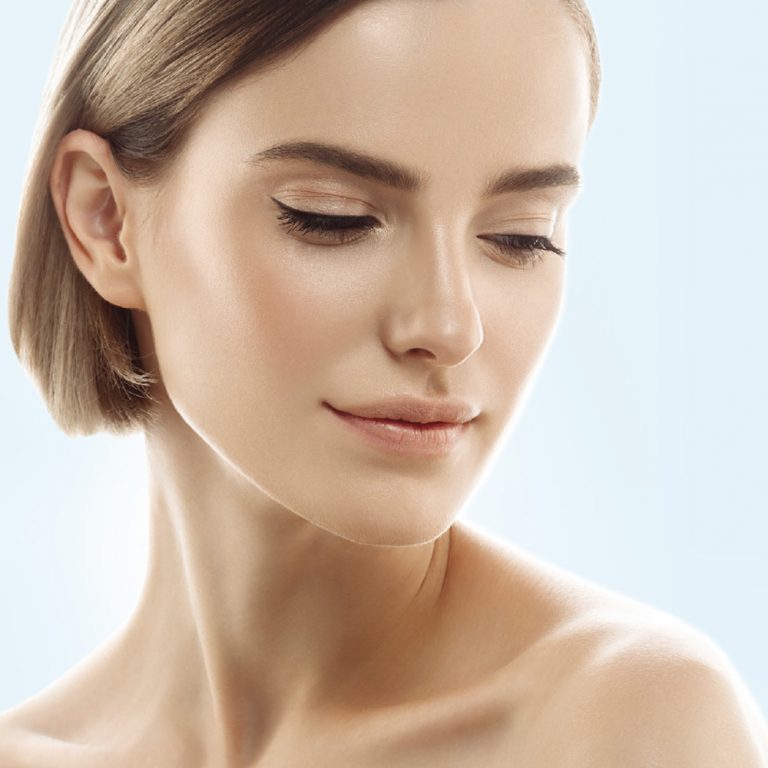Is Your Skin Sensitive or Sensitized?

To understand if your skin is sensitive or sensitized first, it is important to understand what the skin barrier is and its functions.
What is the skin barrier and what does it do?
There are three main layers of skin, (Epidermis, Dermis & Fatty Layer) each have several sublayers, most of which perform unique, specialized functions. The outermost part of the epidermis is the stratum corneum AKA the skin barrier.
The skin barrier has several jobs, many of which are vital for overall health. Three essential roles are protecting the body from pollution and UV radiation, retaining water to keep the body and skin hydrated, and transporting vital nutrients to the skin.
What causes a disruption to the skin barrier?
genetic makeup to your lifestyle can affect your skin barrier’s health. The most significant factors that can impair barrier function are over-exfoliation, stress, sleep, UV radiation, smoking, and chronic exposure to pollution. Think of it this way: Any internal or external stressor that results in visible skin changes is likely capable of disrupting or damaging your skin barrier.
Is My Skin Sensitive or Sensitized?
Eczema and Rosacea stem from skin barrier dysfunctions with the inflammatory disease leading to an impaired skin barrier. This means the skin is more sensitive and reactive to skincare. Dry skin is naturally sensitive due to the lack of oil and lipids in the interlocking layers due to the barrier not keeping water inside tissues and irritants can get past the skin more easily. This is why skin becomes more sensitive as we age.
Sensitized skin is something that’s self-inflicted when you don’t have a condition or a history of inflammatory skin disease. For example, a new exfoliator all of a sudden cause the skin to become itchy, red, and dry; this is considered sensitized skin.
Ingredients can also cause sensitized skin. If a product is formulated too high this irritation and inflammation can lead to a breakdown in your skin’s defenses. With Vitamin C anything above 20% should be used carefully to avoid irritation. Anything below 5-10% has little effect. Understand more isn’t more! Other common sensitizers in skincare are acids like Glycolic Acid, Salicylic Acid, and Lactic Acid. Enzymes that work as exfoliants and retinoids which increase cell turnover all impact the barrier leading to the potential for irritation. Always use with caution or seek a professional for more information.
*If you struggle with rosacea, you should avoid Vitamin C skincare and all acids except hyaluronic acid.
How To Treat Irritated Skin
The #1 thing to do is… LESS!
#2 Pay attention to the ingredients you are using
To prevent irritation, always introduce one product at a time and make sure you aren’t duplicating ingredients. You may be doubling up on exfoliation or even retinoids without realizing it.
If you have an inflammatory condition the best thing to do is go to a licensed professional and figure out what will work for you.
How To Keep the Skin Barrier Healthy
While skincare alone won’t prevent barrier damage, the right routine can have a dramatic impact on the skin’s texture, resilience, and overall appearance. Here is a six-step routine designed to keep your skin barrier strong and healthy.
Step One: Cleanse to Remove Impurities
The first step in a healthy skin barrier routine is cleansing.
Step 2: Soothe Skin with a pH-balanced Toner
Helps remove any remaining dirt, oil, or cleanser residue without over-drying the skin.
Step 3: Apply a Serum That Strengthens the Barrier
Choose a serum that is able to penetrate multiple layers and protects against damaging environmental and internal stressors.

4: Choose a Nourishing Facial Oil
Keeping the barrier well-hydrated is essential for smooth, healthy-looking skin.
Step Five: Lock in Hydration
This unique formula safe for all skin types is clinically proven to fight the signs of aging while protecting sensitive skin from environmental aggressors.
Step 6: Protect With SPF
Last but not least is the most important step in keeping your skin both physically healthy and healthy-looking.






